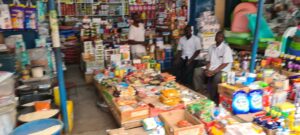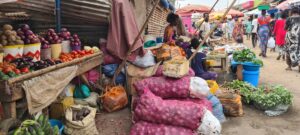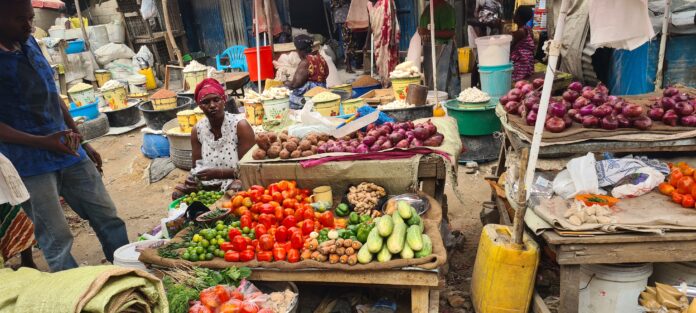Citizens expressing deep concerns due to the high increase in food commodities as the government of South Sudan struggles to stabilize the economic hardship affecting the country.
Catholic Radio Network speaks to some vendors around market spots in Juba to find out how people are coping with the current economic situation.
Local vendor in Libya market, Betty Otto, a widow and mother of three says life has become unexpected due to the high cost of living that makes several people can’t afford to feed their families in Juba.
On Monday, transport fares increased from 500 -1,000 SSP while Soda is now sold at 1,000 compared to the previous price of 700 Pound.
She warned that people will die of hunger in the country unless the government intervenes to introduce new ways of survival for ordinary South Sudanese with low or totally no income for their households.

“I am saying this for our government to look into this situation, the dollar is not the currency of our country. The government should discuss such issues so that those of us who take care of orphans can get something to put on the table.”
“If this issue of the dollar continues like this and the government keeps quiet meaning they want to continue suffering even orphans too,” she stressed.
Betty expressed the suffering of her family to get feeding daily and her transport to the station a problem despite her small business which she said not fairing certificatory
“Now at the time the prices of things were good, I used to sell vegetables in the market and send them to school and they were eating something, but with this current situation of the dollar, everything has become hard even transport is costly and my kids are unable to go to school now they are just home.”
Another woman who was a consumer, Regina Santino, blames the government for not taking measures to reduce the rates of dollars in the country making it difficult for vulnerable people to buy food in the market.
Regina regrets the influx of refugees and returnees to Juba which has contributed to hard life in some households hosting them.
She calls on the government of South Sudan to support the returnees and refugees fleeing from Sudan with food and non-food items to reduce the cost of living in Juba.
Ms. Matiline Keji, one of the peanut paste sellers also uncertified over the income she generates daily and cannot support her family.
She is concerned about the cost of living in Juba saying the prices of food increase every hour including water people buy from the tankers.
“Everything increases every hour, you go to market in the morning you get different prices, you go in the afternoon, you get prices of things have increased. So our lives are at risk now we do not know what to do even though water tankers have increased from 1500 SSP to 2000 SSP.”
Kaji regrets the insecurity in the country making it difficult for people to embark on agriculture to reduce the high cost of living in the country.
“The issue is this country is not all that stable, lives in the village is not all that fine because of insecurity if this country was to be peaceful no insecurity, people are cultivating well, this issue of high food prices would have stopped. So we are crying to the government to fight and reduce the dollar rate because all the high prices of food commodities in the market are because of dollars.”

Meanwhile, one of the business people in Juba, Adam Ishaa said the issue of dollars is also affecting them in terms of getting customers.
Currently, $100 is selling at 165,000 Pound in the black market while the Bank of South Sudan sells it at 159,000 SSP.
He said three liters of cooking oil has increased from 6,000 – 11,500 Pound, while a kilogram of rice is sold at 3,000 compared to the initial price of 2,000 SSP.
“Live now is a problem even we the business people are fearing because once we raise the prices of goods, we are not getting customers because citizens cannot afford, and the more they are not buying, the more.”
“We continue losing because all those goods have the expiration dates. So the issue of the dollar has made life hard, but we are praying to God that change will come so that people can be able to eat something,” she said.
On Monday, March 4, 2024, the President of the Republic of South Sudan Salva Kiir Mayardit, and leaders from economic institutions convened a crucial meeting to seek avenues to tackle the current drastic inflation in the country following a week-long high increase in prices of transport fares and commodities in the market triggered by the high exchange rate of US dollars against the South Sudanese pound.

